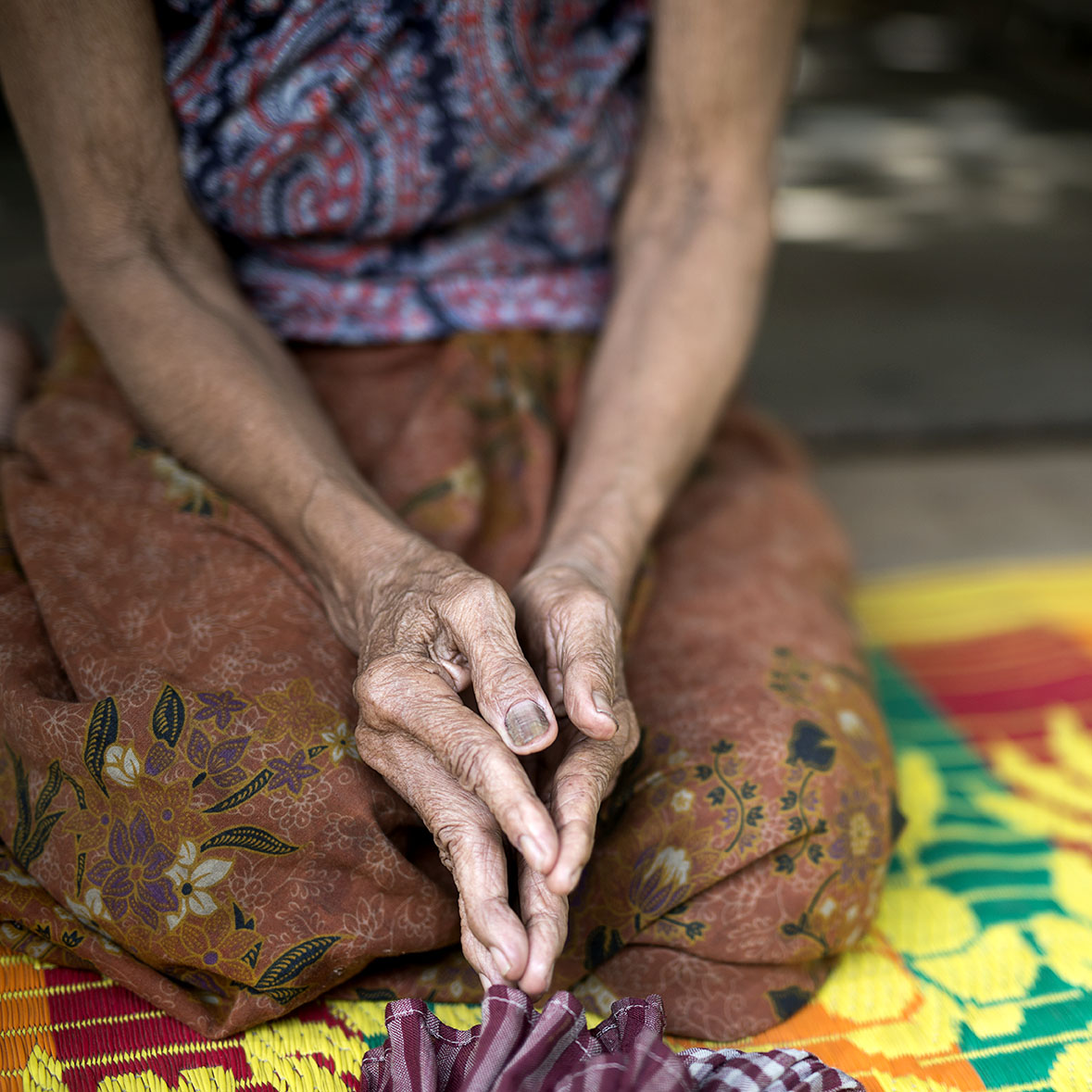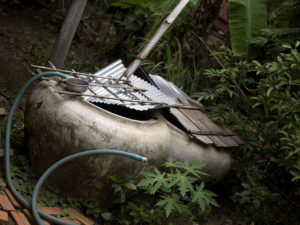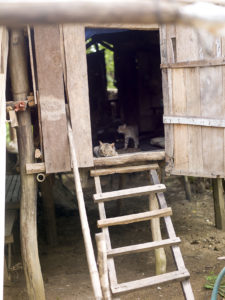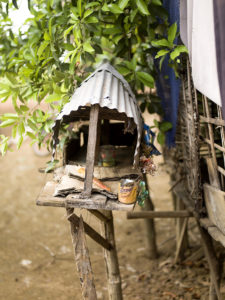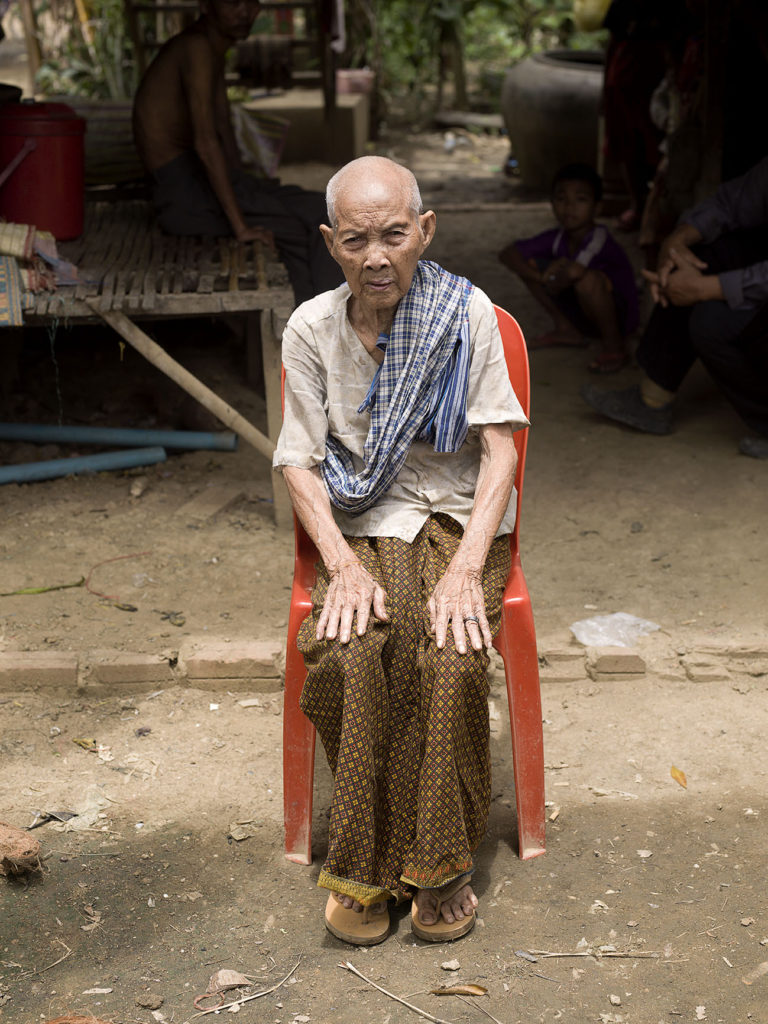Another day in our research into elderly in Cambodia found us in Battambang province, in the house of a woman of 85 years old, Ean Mann. Thanks to our translator, we finally understood what Ean Mann (85) was repeating to us when we left:
“I will miss you forever daughter, you and your family. For ever, around the whole world, I will miss you.”
This was the second time we visited her and her husband Kok Hnok in their village in Battambang. She was just telling us about the house they had before, only covered with palm tree leaves, and how a friend came and reconstructed their house with wood. Also she told us how , or other food, almost daily.
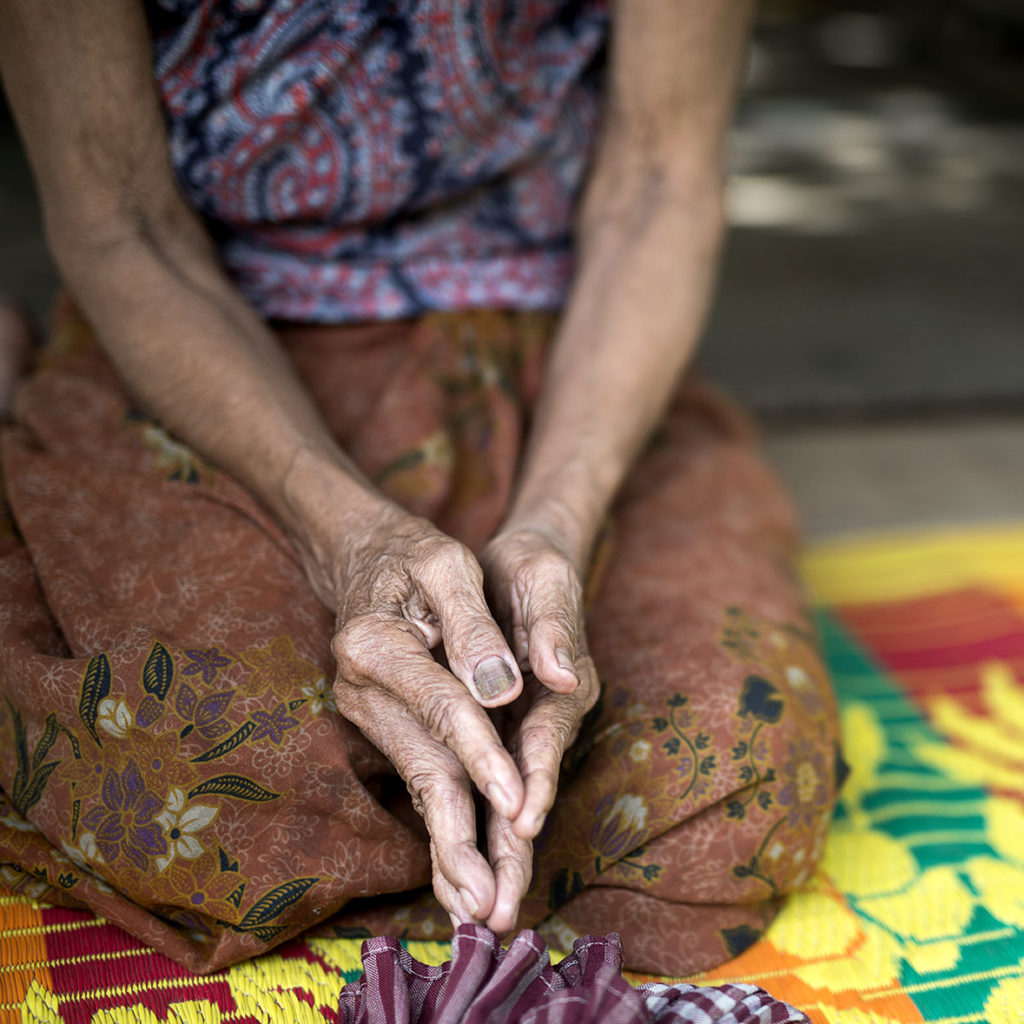
The story of the kindness and connection with the people around them warms our heart, and hers as well, she feels very grateful, and most of the conversation she keeps her hands folded in the Buddhist gesture of respect and gratefulness.
Also she tells us that there is no way for them to have an income. They cannot physically work anymore, and they have no children who can give them money. Imagine this insecurity everyday: will there be any food for us today, will we get sick, will we have money for medicine?
Compared to the lives of elderly in countries where a basic income security is arranged through government our employers, the worries of Cambodian elderly seem very basic. In our current research in The Netherlands we follow the discussion going on in the newspaper, mostly talking of the rights of elderly, hard working people who build our country.
In Cambodia everyone above 60 years has lived through a decade of dictatorship, war and mass torture and killings. Mostly loosing children, husbands, wives, parents and their house and jobs.
Meanwhile Ean Mann is talking about the loneliness she feels, and asked what she is the meaning of the sentence she is repeating over and over again, our translator says:
“O, now my only wish is that we have children in our next life.”
